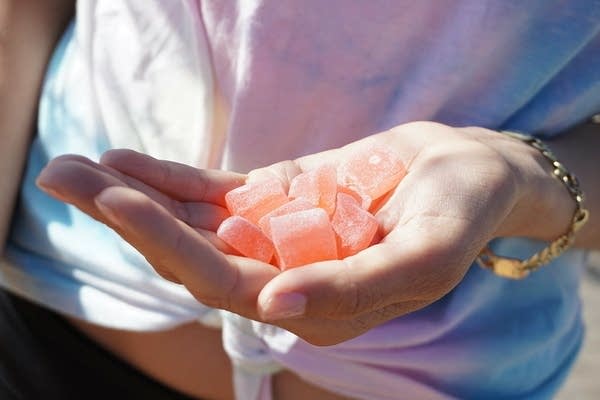THC edibles surge in Minnesota but safety rules are loose, regulators aren’t ready

A person holds gummies containing THC. Under the new law, no more than 0.3 percent of THC derived from hemp is allowed.
Courtesy Elsa Olofsson at CBD Oracle via FlickrGo Deeper.
Create an account or log in to save stories.
Like this?
Thanks for liking this story! We have added it to a list of your favorite stories.


